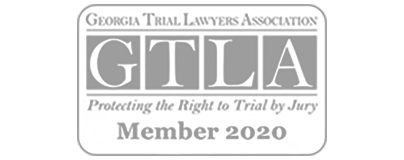Home | Glossary of Personal Injury Terms | Contributory Fault
Contributory Fault
Determining fault in an accident can often be a complex and nuanced process. Georgia law recognizes that accidents can involve shared liability among various parties. The principles of contributory fault play a crucial role in determining the compensation available to injured individuals and identifying who is accountable for that compensation.
Consider a scenario where a driver under the influence veers off the road and injures a pedestrian. In this instance, it is evident that the driver holds primary responsibility for the pedestrian’s injuries, and thus, should offer compensation. However, there are situations where multiple parties may share the blame. Imagine one driver is speeding while texting, and another driver is intoxicated. In such cases, both drivers may be deemed partially responsible for the accident by the court.
The Concept of Negligence
Most personal injury claims hinge on the concept of negligence, which occurs when an individual fails to exercise reasonable care, resulting in harm to another person.
Negligence is typically evaluated through four key elements:
- Duty. Individuals have an obligation to maintain a standard of reasonable care. For instance, drivers must be cautious while operating vehicles on public roads.
- Breach. An individual fails to uphold their duty of care, which may involve taking unnecessary risks, making careless errors, or acting recklessly.
- Harm. Another person suffers injuries or damage as a result of the breach of duty.
- Causation. The actions of the negligent party directly cause the harm suffered.
In accidents, careless behaviors can lead to shared liability, meaning more than one individual can be found negligent, including the injured party themselves.
The judge or jury evaluates the actions of all involved in a personal injury case to determine responsibility and extent.
Contributory Negligence Explained
Contributory negligence refers to instances where victims may have played a role in causing their own injuries. These laws bar victims from recovering damages in states where they share responsibility for the accident. Some states, such as Alabama, Maryland, North Carolina, and Virginia, observe this approach.
Contrastingly, Georgia operates under a more flexible rule known as comparative negligence.
The Comparative Negligence Framework
States adhering to comparative negligence principles allow individuals who share fault in an accident to still seek compensation. Under pure comparative negligence laws, an injured party can recover damages from all parties involved in the incident, regardless of their percentage of fault, provided it is not 100 percent. For instance, an individual found to be 99 percent at fault could still receive compensation from another party found responsible for the remaining 1 percent.
Modified Comparative Negligence in Georgia
Georgia adopts a modified version of comparative negligence. This means that individuals who contribute to an accident can still recover damages as long as they are not the primary cause. Specifically, if a party is found to be less than 50 percent responsible, they remain eligible for compensation.
To illustrate, consider a car accident scenario in Georgia where one driver is texting and the other is slightly speeding. If a jury determines that the texting driver is 75 percent liable and the speeding driver is 25 percent responsible, the texting driver would be unable to recover any damages from the speeding driver.
Impact on Damages
While contributory fault may not entirely negate the ability to recover compensation, it will influence the total amount awarded. Courts will adjust the damages awarded to an injury victim based on their degree of responsibility in the incident.

GEORGIA PERSONAL INJURY LAWYER NEAR ME
Consult a Georgia Personal Injury Lawyer
Even if a mistake on your part contributed to your injury, you may still be eligible for compensation through a personal injury lawsuit in Georgia. Consulting with a Georgia attorney can help you evaluate your case effectively. An experienced personal injury lawyer can assist in presenting your case, potentially demonstrating that another party or multiple parties are primarily responsible for the accident.
For more information on how a South Atlanta personal injury lawyer can advocate for your rights, consider reaching out to The Jewkes Law Firm at (770) 771-5130.
GET A FREE CASE REVIEW
PRACTICE AREAS
Frequently Asked Questions?
Do I need a personal injury attorney?
The Jewkes Firm is well-versed in effectively challenging major insurance companies on your behalf to secure the highest settlement permissible by law. Our primary objective is to ensure your optimal recovery. It is only after this point that we assess the worth of your case.
What is the deadline for filing an injury case in Georgia?
The timeframe for filing an injury case, also known as the statute of limitations, can vary significantly. As per OCGA §9-3-33, you are granted a two-year period from the date of your injuries or the passing of a family member to initiate your personal injury claim.
What is the cost to hire a personal injury attorney?
There is no upfront cost associated with hiring a personal injury lawyer. Our fees are based on a percentage of your settlement, meaning you only pay if we successfully recover compensation. Our top priority is ensuring your well-being and helping you return to your normal life.
What damages can you recover from a personal injury?
A personal injury lawyer aims to establish negligence and seek restitution for the harm caused by the liable party. Additionally, you may be entitled to compensation for funeral costs, medical expenses, and income lost if you are a family member of someone who died as a result of an injury.
Free Case Evaluation











